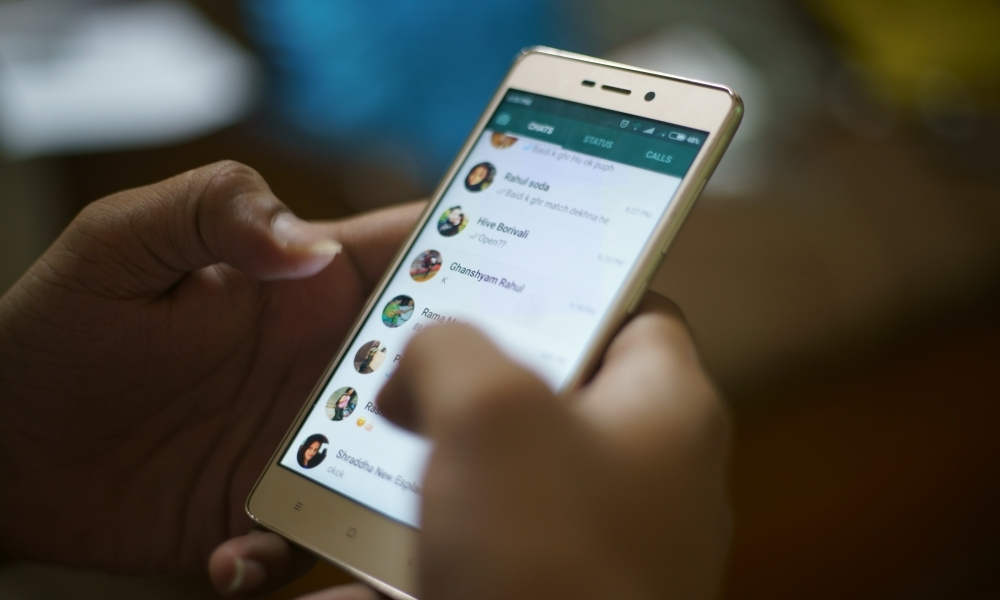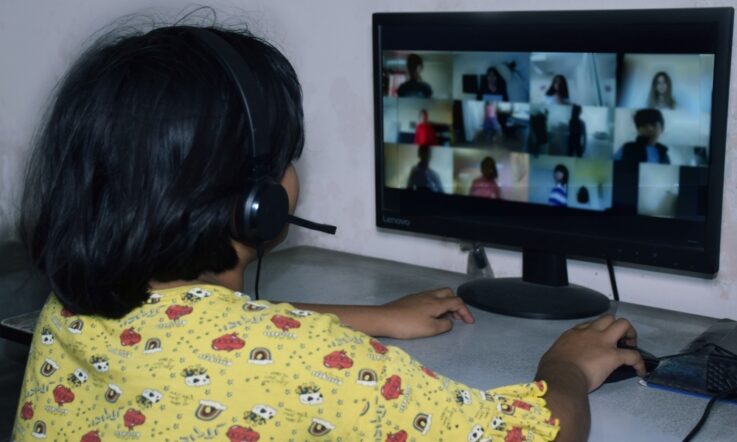Events of the last two years have forced teachers and principals to think differently about how they can continue to best meet the needs of students and their families in times of change and uncertainty. In the first two articles of our series on ‘Learning during the pandemic’, educator Geeta Gujral explained how her school has provided opportunities for students to share their experiences and emotions, and Head of DLF World School and science educator Dimple Puri discussed flexible assessments for online teaching, with examples from her own classroom. In this latest instalment, we speak to Suruchi Gandhi, who was awarded the 2021 National Award to Teachers.
Suruchi Gandhi is the Principal of Bal Bharati Public School in Dwarka in New Delhi which serves approximately 3000 students with the support of over 150 highly qualified and experienced staff.
Also, the recipient of awards from the Central Board for Secondary Education (CBSE) and Delhi Government, Gandhi is recognised for her contributions to the development of learning experiences that promote the holistic development of students.
Established in 1997, Bal Bharati is an inclusive private school that responds to the needs of all children, including those with disabilities, through infrastructural adjustments and modified teaching methodologies.
As mandated by the Right to Education Act (RTE), the school enrols students from lower-income backgrounds. It has received the Samagra Shiksha – Empowering India Awards from the National Accreditation Board for Education and Training (NABET).
The school focuses on learning by doing in primary grades and the construction of knowledge through experiential learning in science and commerce at the higher secondary level.
Shifting away from bricks and mortar
At Gandhi’s school, the shift from offline to a full-time online classroom teaching mode led to initial hesitancy and fear – it was new for both educators and learners. However, educators were already off to a good start.
‘The faculty in Bal Bharti School were able to respond quickly to the changing circumstances as they had started to take professional learning courses on online teaching well before the lockdown had started.
‘The courses taken before and during the school closures supported teachers to adjust teaching strategies to meet the learning needs of children of all age groups in online environments.’
Over 45 educators at the school have been recognised as Microsoft Innovative Educator (MIE) Experts. ‘My colleague, Aishwarya Taneja, who leads the economics department, utilises her training and skills to conduct webinars and workshops for teachers from all over the country, serving as a resource person for CBSE.’
Communication is critical
Gandhi points out that school closures heightened the need for regular stakeholder interactions and communications.
‘All relevant information about classes and school activities was conveyed to faculty members as well as students and parents through WhatsApp groups and mobile applications such as Snap Homework.
‘The school actively sought feedback in the form of emails and text messages to allow parents to air their concerns, so that they can be promptly addressed.’
The school also encouraged teachers to communicate with each other ─ share learnings, concerns, and challenges. They provided their feedback to supervisors as well as the school head.
‘We have been actively and constantly engaging with educators to gather an understanding of emerging teaching-learning practices,’ she says, ‘For instance, the area of formative and summative assessment is being explored collectively.
‘Feedback from staff helped in designing new initiatives that would be needed in due time. We collectively intend to further refine the implementation of neoteric educational techniques to boost the holistic growth of children.’
Looking ahead
Schools in India have been switching from online to offline and back again depending on the COVID situation. ‘Two years into the pandemic, [for us] the shift has been rather smooth, owing to the enhanced digital literacy of our educators and learners.’
Gandhi points out that teachers will have a key role in the socio-emotional growth of children in this crisis. ‘The school provides multifarious avenues for teachers to upgrade and hone their skills in such areas.
‘The school frequently collaborates with reputed organisations such as The Art of Living, Brahma Kumaris, Project CACA and Sankalp Sahodaya to equip teachers with requisite skills that enable them to address the socio-emotional needs of children through classroom activities integrated within the curriculum, as well as individual counselling.
‘Teachers have attended seminars on topics such as holistic wellbeing, psychological aspects of bullying, and adolescent mental health, among others.’
Going paperless
The pandemic also marks Bal Bharati’s transition to becoming a paperless organisation. ‘Digital records and bookkeeping have replaced traditional methods, opening up an opportunity to take affirmative steps towards environment conservation.’
Gandhi adds the pandemic is a unique phase in modern education.
‘Narrow definitions of teaching and learning need to be re-examined,’ she explains, giving an example: ‘Paper and pen tests are not the only way of assessing students, but a plethora of activities can be used to understand the mastery of a subject.
‘Our goal is to provide meaningful, reflective and practical exposure to students, and the experiential model of learning has been adopted across all levels of learning.
‘A sensorial garden has been instituted in the school, providing learners a multi sensorial experience of the world of flora. Learners at higher grades explore scientific theories through hands-on experiments in Atal Tinkering Labs. They have spearheaded projects such as Blind Man’s Stick and Robotic hand, winning national accolades.’
In this article, Suruchi Gandhi speaks about strengthening communication with education stakeholders. What are the communication channels in your school? How do you ensure seamless communication with staff and parents? How did this change during lockdown?
As a school leader, what are the key areas of professional learning for your educators? Is there a professional learning calendar planned at the beginning of the academic session?
If you’d like to share your own story of a successful initiative to support students and educators at your school, email the Teacher team via teachereditorial@acer.org



